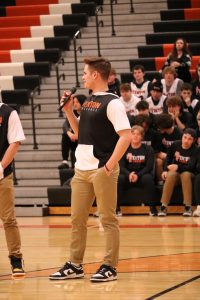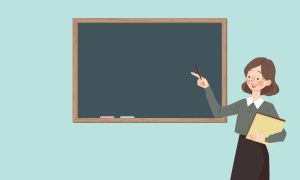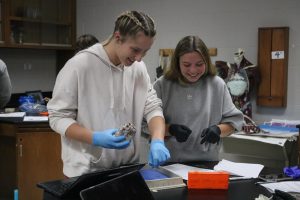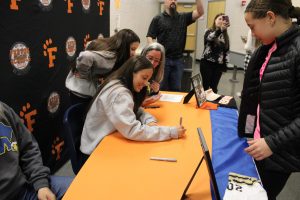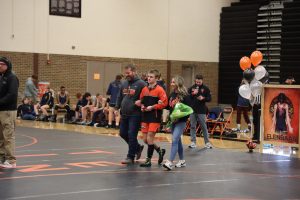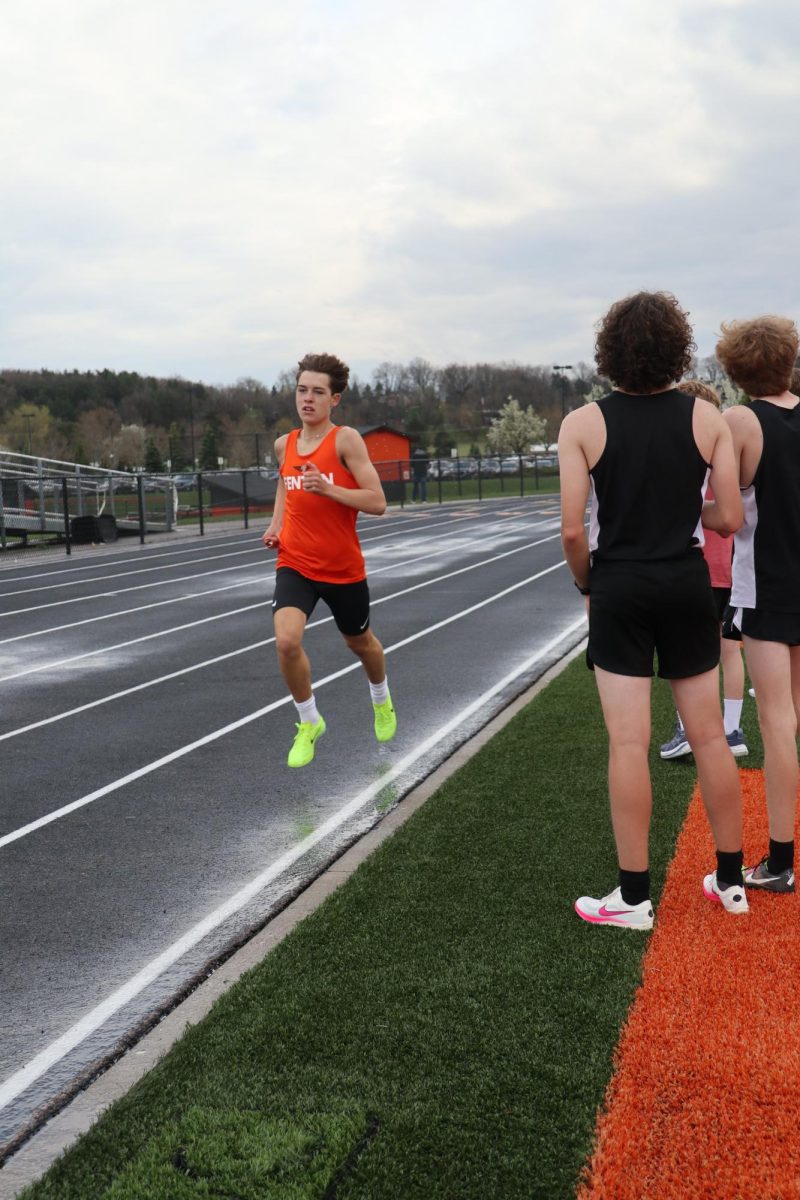Students take college courses on FHS campus
November 28, 2017
They graduated high school and hit the ground running toward college. Throughout their high school career teachers had the mindset of preparing students for college and the real world, but no matter how much they tried, it was nothing like the real thing. Students are immersed in the college world so quickly and fiercely, they practically drown in confusion. However, through the Dual Enrollment Educational Partnership (DEEP) program, high schools are aiming to make this transition into college easier.
“The DEEP program is a partnership with the University of Michigan Flint where their college classes are offered here on campus,” guidance counselor Elizabeth Elsesser said. “Colleges typically offer dual enrollment classes at their campus and now this program provides a unique opportunity to have them here.”
For students, dual enrollment means an introduction to higher level education, the expectations and the behaviors they may encounter in university, especially concerning the professors.
“The DEEP program acts like a bridge between college and high school,” senior Riley Shegos said. “It helps you ease into college and how the professors behave. I’ve noticed that they care less about whether or not you succeed and they don’t baby you like high school teachers do. Half the time, they never tell you about what’s due, all of that information is on the syllabus they give you at the start of the semester.”
Students who decide to partake in the dual enrollment program and earn at least a C average can obtain college credits before receiving their high school diploma.
“The DEEP program can give you college credits,” Elsesser said. “With each course being worth three credits, a student in the program could end up with twelve college credits by the end of their high school career, and it would cost much less than if you were to take a course at a university. But besides college credits, you get exposure to college level work with college professors teaching you. Students get a better understanding of how it all works; in one class, the whole grade is the exam and a giant essay.”
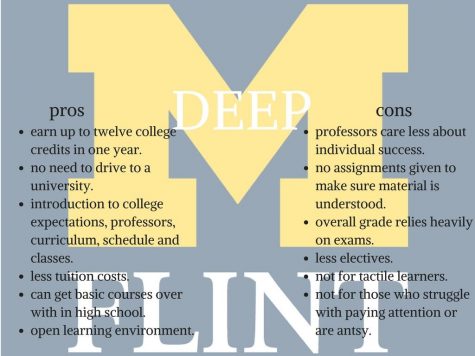 However, while the DEEP program can earn you up to twelve college credits, for some students, there are better options than dual enrollment.
However, while the DEEP program can earn you up to twelve college credits, for some students, there are better options than dual enrollment.
“If you were a tactile learner, you’d hate dual enrollment,” said senior Lindsey Smith. “There aren’t any hands on activities, though there are sometimes handouts or videos. The program is mainly for visual and verbal learners. It’s not for antsy people either. While the classes are loud and open to discussion, there are classes where you sit around and write the whole time, filling up four pages of notes in one class.”
The DEEP program is said to favor visual and verbal learners, but the class selection also makes some hesitant to enroll. While the courses may seem unique, there might be more suitable classes for a desired career at the high school.
“Students have to take both offered classes with the DEEP program,” Elsesser said. “They have the first class on Mondays and Wednesdays and the second on Tuesdays and Thursdays, with a study hall on Fridays. This semester, students are taking cultural anthropology and philosophy. Next semester, we will offer twentieth century world history and a survey of African American history. Because this is our first year offering this program, we don’t have a whole lot of choices, but there is a potential for more classes of student interest next year. We will find out in the upcoming January meeting.”
As more and more classes are offered in this program, students who dual enroll will be able to experience college level courses of their interest and their individual atmospheres.
“The DEEP program classes this semester are anthropology and philosophy,” junior Chris Harper said. “These were chosen because they were the most basic college courses, all the better to complete sooner rather than later. They are always during fourth block, but we get out a little earlier, at 2:15, since they are the length of regular college classes. Each class both has their own atmosphere, like anthropology is more open and direct, right to the point, while philosophy is more thinking and opinion based. Right now though, both classes are lightweight, mostly note taking and a follow up exam. However, that can be difficult since there aren’t any assignments that would make sure you know the material, so it’s really important to pay attention and ask questions. Also, we’ve already had two exams for anthropology and the first exam for philosophy a couple weeks ago.”
For students interested in the DEEP program there will be an upcoming meeting and application.



